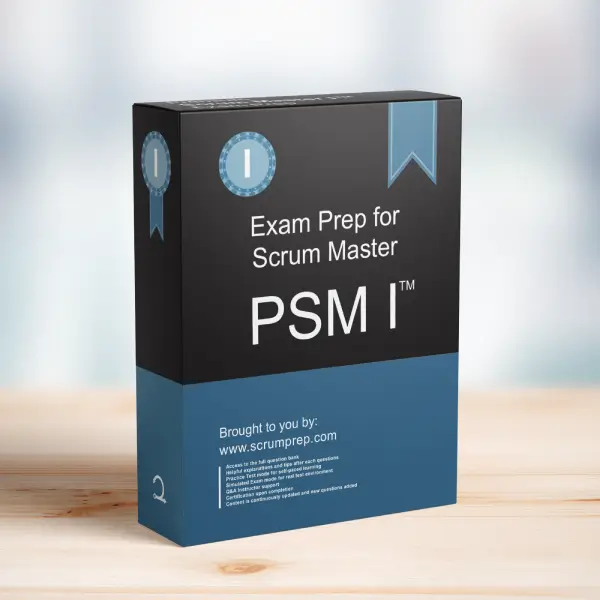True Aspects of Scrum
Scrum is a popular framework that helps teams work together to develop and sustain complex products. Understanding its core principles and components is essential for effectively applying Scrum in any environment.
Exam Question
Which three of the following are true about Scrum?
(choose the best three answers)
A. Scrum is a methodology, where you can pick and choose which parts of Scrum you think will work for your environment.
B. Scrum implements self-management by replacing Project Managers with Scrum Masters.
C. Scrum is a framework for developing and sustaining complex products.
D. Scrum is based on empiricism and lean thinking.
E. Each component of Scrum serves a specific purpose and is essential to Scrum’s success and your usage of Scrum to develop complex products.
Correct Answers
C. Scrum is a framework for developing and sustaining complex products.
D. Scrum is based on empiricism and lean thinking.
E. Each component of Scrum serves a specific purpose and is essential to Scrum’s success and your usage of Scrum to develop complex products.
Explanation
Correct Answers
Scrum as a Framework (C):
Scrum is a framework designed to help teams tackle complex projects. It provides a structured yet flexible approach to product development, emphasizing iterative progress, collaboration, and adaptability.
Empiricism and Lean Thinking (D):
Scrum is grounded in empiricism, which means making decisions based on observation and experience rather than predictions. Lean thinking, which focuses on maximizing value while minimizing waste, also underpins Scrum principles.
Essential Components (E):
Each component of Scrum, including its roles, events, and artifacts, serves a specific purpose. These components work together to support the framework’s effectiveness in delivering complex products. Ignoring or altering any part can diminish the overall benefits and success of Scrum.
Incorrect Answers
Scrum as a Methodology (A):
Scrum is not a methodology but a framework. While methodologies are prescriptive, telling you exactly how to do something, frameworks provide a structure that you can adapt to your needs. Scrum’s components are interdependent and should not be selectively applied.
Self-Management and Roles (B):
Scrum promotes self-management but does not achieve this by simply replacing Project Managers with Scrum Masters. The Scrum Master’s role is to facilitate and coach the team in Scrum practices, not to act as a project manager. Self-management means the Scrum Team collectively decides how to accomplish its work.
Responsibilities in Scrum
- Product Owner: Ensures the Product Backlog is ordered and refined to maximize value and align with the team’s capacity. Develops and explicitly communicates the Product Goal. Creates and clearly communicates Product Backlog items. Represents the needs of many stakeholders in the Product Backlog. Optimizes the value of the work the Scrum Team does by making informed decisions on the Product Backlog.
- Scrum Master: Coaches the team in Scrum practices, removes impediments, and facilitates team events to ensure productivity and adherence to Scrum principles. Helps everyone understand Scrum theory and practice within the Scrum Team and the organization. Ensures that Scrum events are productive and kept within the timebox.
- Developers: Collaborate to create the Sprint Goal and the Sprint Backlog, ensuring all work aligns with the Sprint Goal. Complete all tasks necessary to deliver a potentially shippable Increment, including ensuring that all Product Backlog items meet the Definition of Done.
Relevance to the PSM I Exam
Understanding the correct aspects of Scrum is critical for the PSM I exam. Recognizing Scrum as a framework based on empiricism and lean thinking, and knowing that each component is essential, will help candidates answer related questions correctly.
Key Takeaways
- Scrum is a Framework: It provides structure but not a detailed methodology.
- Empiricism and Lean Thinking: These principles are foundational to Scrum.
- Integral Components: Each part of Scrum is necessary for its success.
Conclusion
Grasping the true nature of Scrum and its principles is crucial for effective implementation and exam success. For comprehensive preparation and practice exams, check out PSM I Exam Prep to enhance your understanding and application of Scrum principles.




